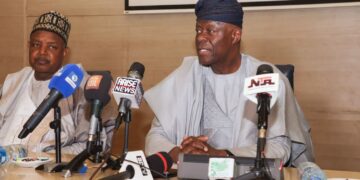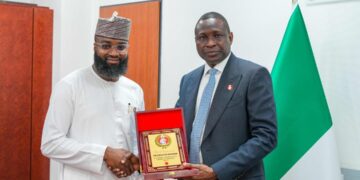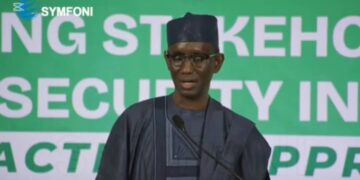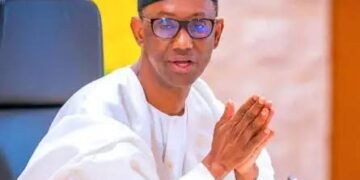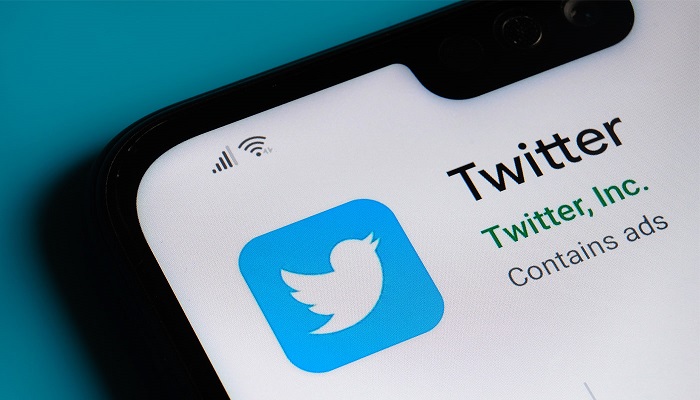By Aliyu Abdullahi
The Twitter Ban placed by the Federal Government of Nigeria is finally lifted on 12th January, 2022, the ban has been quite successful and in place since 5th June, 2021. Seven months on the outs except for those who found some ingenious ways to go around the ban such as the use of Virtual Private Network (VPN), so many lessons abound from the occasion of this ban.
At the beginning of the ban, some thought and concluded they cannot live without the Social App, while some made economic arguments showing varying and startling but unverifiable statistics of the harm it could do to the Nigerian economy especially to the youth demography who are expectedly majority of the users. Some just entertained doubts of uncertainty, because that social App Twitter has since become part of our routine life. It is only natural to expect a shock and mixed reactions from the implementation of a policy that targets a huge social change.
The Federal Government was firm and adamant in its decision to sustain the ban in order to correct the many ways the Social App has gradually turned into. Twitter like all other social media apps are unregulated territories. Twitter has its community rules which they enforce according to their wishes and community bias, these community rules are not necessarily reflective of the societal rules where this platform is used. The Twitter is unarguably one of the best and most user friendly social platform in the digital age, but a lot of unsavory things do go on unchecked and unsanctioned by the Admnistrators even where complaints were made according to the procedures.
The Government became increasingly concerned, and rightly so. There were wars fought on daily basis on the streets of Twitter and not for the faintest heart, a once decent culture of mutual respect particularly in communication and other forms of relationship between younger ones and the elderly, the Omualabi concept in Yoruba became eroded and replaced by an alien one invented by the so-called Soro Soke (Speak-out) Generation which ensured that the bravest is one who could employ the use of most foul or violent language as a means of expression among peers and even their elder ones. Fake news and hate merchants were not far behind, political thuggery also found a breeding ground on the Twitter platform, insurrectionists, and many more are all subscribers and users of the platform.
As much good the platform of Twitter can do to better the lives of people, to help politicians reach a much wider audience, the clergyman to a wider congregation, a platform that digest and assemble an array of both international and local news in a much easier consumable fashion and many more good. Yet, it was also a platform that a lot of bad can be done.
There was great suspicion by the Federal Government and even some prima facie evidences that organized crime and other illicit activities found the selective nature of Twitter’s application of their community rules and sanctions as a preferred medium. Even lawfully proscribed groups and terrorists uses the platform for dissemination of their messages and propaganda. The most worrisome part was the fact that Twitter can actually serve as a platform for these kind of people to get organized, and to compound these challenges was the fact that Twitter Inc. was not a Nigerian Company, owes no any form of allegiance to the country. Although one can argue that it was in Twitter’s own interest to see to a safe, secured and prosperous Nigeria, but make no mistake they can also see that the country is burned to the ground and that would not affect the company in any significant way, nor will they be held liable even if they were to be found somewhat responsible. That was the situation as at 6th June, 2021.
The ban also presented a unique opportunity to other tech companies both locally and internationally to see how they could enter the market with their social app and cut some slices into Twitter’s giant cake share of the Social App in Nigeria. There was a social app developed in India named Koo that made quite an inroad into the Nigerian market, before the 6th of June 2021, almost 99.9% of Nigerians never heard of the social app called Koo, one month into the ban, the company was already making preparations to come into Nigeria, register it as a Nigerian company, open an office, build structure and employ Nigerians, all the things that Twitter did not do before in Nigeria, despite its huge client base in Nigeria.
There was also some indigenous relatively new entrants into the social app market like the Crowwe and others. I am quite sure their base recorded some growth within the past 7 months of the ban.
The Government could no longer sit and fold its arms, it must take necessary actions, after all, it swore an oath to do just that. Therefore, as a responsive Government, a line of communication with the global headquarters of Twitter was opened but not before some attempts of grandstanding by the diplomatic mission of the Country of origin of Twitter Inc.
As the Federal Government of Nigeria stands firm and resolute in its decision even in the face of huge outcry by some citizens while opposition politicians latched onto the opportunity to castigate the Government for the indefinite ban, the media both international and local were not left out, for some few months, that was all that dominated the media and public space, a less decisive Government or one that panders to the public optics would have giving in to the vocal minority and the ban would not have lasted a week at most, such was the amount of pressure a giant conglomerate could actually put on any Government, but this Federal Government headed by President Muhammadu Buhari was not the kind of government that bows to pressure, it was and still is the one that ensures it secured the best deal for the country even if the citizens do not know that at the time.
Nigerian Government had simple requests from Twitter and all aimed at streamlining and sanitizing the usage of the platform in the country. Register in the country, recognize that our laws can be applicable to you, pay the country the right taxes, open an office and invest in the country that will also provide Nigerians with job opportunities and above all, by agreeing to these terms, Twitter will have a tied destiny with Nigeria, what is good for the country will surely be good for Twitter, and what is bad for Nigeria will be bad for Twitter, these are the terms that extended the ban to 12th January, 2022. A big lesson in the form of co-dependency and mutual respect was learned here.
But the bigger lesson for me personally was the strength and resilience of many of my country people. Some people stood out and earned my greatest respect and admiration over this Twitter ban. I never expected some of these people could actually abide by the regulation of the ban. For them, Twitter was like a second home, they have reasonable commanding and loyal follower-ship. They have transacted on Twitter, gained and lost like any business, they are great influencers , and rallying points for those who share in the same ideology.
Therefore, one can understand my doubt that these people could keep away from Twitter but they did. I know some will argue that the backlash that will naturally come to them as ardent supporters of the very administration that banned the Twitter could be the incentive for them to keep away, but I do not buy that line of argument. They could have been on Twitter and continue to avoid posting and no one will be the wisest like many of our fiends and comrades in struggle and even political appointees of this Government did while the ban lasted, but these patriots simply did not.
They owed no greater duty of care to observe the ban in absolution, they do not hold any appointment in this administration, they simply abide out of respect, obedience and I believe, out of strong conviction and patriotism.
As I posited above, even when many Government Elected and appointed officials continued to observe the ban in breach by using VPN to circumvent the indefinite ban, they usually check the Twitter but do not post probably due to fear of the backlash from the rest of the people who do not agree with the ban. These honorable and patriotic Nigerians did not take that route.
Let me confess I was also guilty of the breach, and it started in the United States sometimes in September 2021, I felt justified to use the Twitter since I was not in the Country of ban, I reasoned then that I was not breaching any rule, now I know that although I was not in breach but I surely was not obedient enough, and I repeated it in Germany, and like an addict when I got back home to Nigeria, I quickly downloaded a VPN and continued accessing the Twitter until I observed these patriotic Nigerians painstakingly abstained completely and I wondered if they restrained themselves from using the VPN out of obedience for the rules irrespective of whether the ban was fair or not. The question I asked myself was why can’t I do the same thing? and some kind of shame engulfed me, and that was how I stopped accessing Twitter and uninstalled my VPN and followed the footsteps of these patriotic Nigerians.
Today, the war was won, and Nigerians both those who agreed with the ban and those who did not, are the biggest beneficiaries. The lesson here is that of patriotism and unity of purpose, together, there is nothing impossible to achieve.
*Aliyu Abdullahi is a Special Assistant to the President on Media & Publicity (Office of the First Lady)


